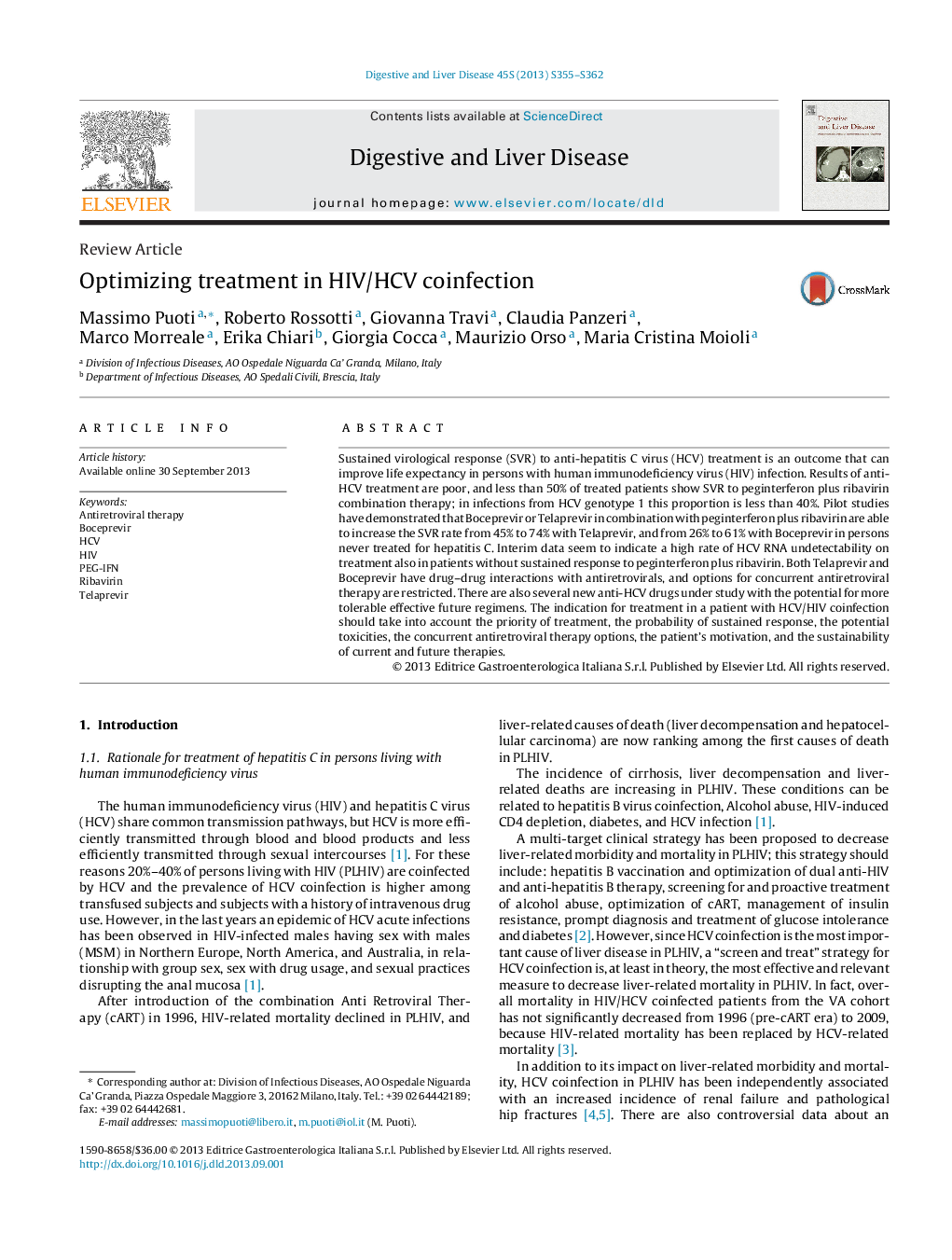| کد مقاله | کد نشریه | سال انتشار | مقاله انگلیسی | نسخه تمام متن |
|---|---|---|---|---|
| 3262639 | 1207739 | 2013 | 8 صفحه PDF | دانلود رایگان |

Sustained virological response (SVR) to anti-hepatitis C virus (HCV) treatment is an outcome that can improve life expectancy in persons with human immunodeficiency virus (HIV) infection. Results of anti-HCV treatment are poor, and less than 50% of treated patients show SVR to peginterferon plus ribavirin combination therapy; in infections from HCV genotype 1 this proportion is less than 40%. Pilot studies have demonstrated that Boceprevir or Telaprevir in combination with peginterferon plus ribavirin are able to increase the SVR rate from 45% to 74% with Telaprevir, and from 26% to 61% with Boceprevir in persons never treated for hepatitis C. Interim data seem to indicate a high rate of HCV RNA undetectability on treatment also in patients without sustained response to peginterferon plus ribavirin. Both Telaprevir and Boceprevir have drug–drug interactions with antiretrovirals, and options for concurrent antiretroviral therapy are restricted. There are also several new anti-HCV drugs under study with the potential for more tolerable effective future regimens. The indication for treatment in a patient with HCV/HIV coinfection should take into account the priority of treatment, the probability of sustained response, the potential toxicities, the concurrent antiretroviral therapy options, the patient's motivation, and the sustainability of current and future therapies.
Journal: Digestive and Liver Disease - Volume 45, Supplement 5, 30 September 2013, Pages S355–S362